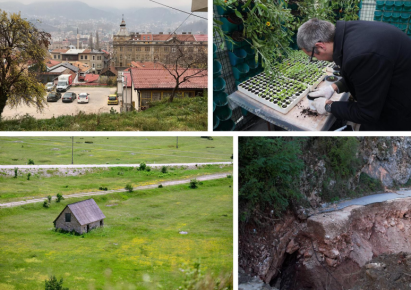People Should Begin to Raise Their Own Energy Bills. The Best That We Can Hope for from the State is Additional Housing Benefits
Published: Aug 19, 2022 Reading time: 3 minutes Share: Share an articleThere are more and more desperate people receiving overdue energy bills every day. In their helplessness, they are turning to People in Need’s help line and debt counsellors for advice (770 600 800).
Over the past year, energy distributors have had to increase their prices several times in accordance with energy bills. According to People in Need, individuals can help guard themselves against sudden sharp prices increases if they take a proactive approach now and begin to increase their own fees for energy prices. But the state must also help the most vulnerable — by valuing normative costs, establishing adequate housing allowances and offering support to more households. An increase in the housing allowance would cost the state only about CZK 1.5 billion (€ 61 million) compared to its previously allotted amount.
Costs have been rising for everyone recently and low-income households -- especially those with elderly people, single parents, and families with children -- often feel completely hopeless.
“One tends to bury one’s head in the sand and wait for the energy company to write. A more appropriate approach is to proactively increase your payments. It is certainly a better way to force yourself to save and to avoid huge fees later on which can amount to CZK 15,17,20 thousand (€ 609, € 690, € 812) - with the annual billing frequency. And which often can only be solved by taking out a loan,” encourages Daniel Hůle, Head of the Debt Counselling Program at People in Need
Housing Allowance Norms No Longer Correspond to Reality
Currently, the most effective aid is housing allowance - claimed by nearly 200,000 households out of total of 4.5 million households and the state paid the total of CZK 6.6 billion (about € 270 million). In contrast to financial aid benefits, the housing allowance can also be used by people who have some savings. It is allocated according to income and housing costs, including energy.
“The normative housing costs, i.e., the imaginary cost ceiling, has been set since January according to the estimate from November last year. At this time, no one could have known that the war would start and prices would rise and that the level of normative costs would quickly cease to correspond to reality. One-person and two-person household are in the worst situation — we estimate that they are undervalued already. However, the government refuses to increase the normative rates because the Energy Regulator Office (Energetický regulační úřad, in Czech) allegedly claims that energy prices are not rising according to last year’s expectations,” says Hůle, wondering about the cabinet’s approach.
Instead, according to People in Need, the government has decided on the worst possible way of support, which will be extremely expensive. Starting this October and throughout the year, the state wants to waive the fee for supporting renewable energy sources and introduce a cost-saving tariff for all households and companies.
“A discount for everyone will surely make us all happy. But it won’t really help those with real financial problems. A reduction of 15% from CZK 7 or 8 thousand (between € 280 - € 325) for energy costs for someone who lives on a monthly income of ten thousand (€ 405) will not make much of a difference. At the same time, the state pays ten times that for annual support of poor people in the area of housing — up to CZK 70 billion (€3 billion),” comments Jan Černý, director of the Social and Educational Programs at People in Need.
For this reason, People in Need encourages the government to return to their original idea, for which they just couldn’t find a technical solution, a discount only for the consumption of the energy minimum and a reward for those who can save.
The problem is also that people often do not know about all existing forms of state aid and often do not even how to apply for it,” points out Jan Černý.
For a full break down of all the forms required to apply for housing benefits, please see the Czech version of this article, available here.



